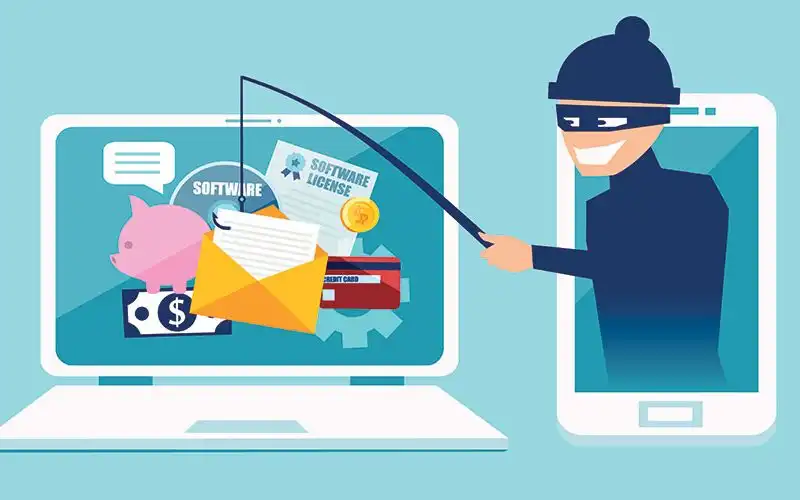
Identity theft via phishing has grown steadily in the last few years, and has now exploded due to the pandemic restrictions and the rise of online interactions.
Phishing was previously defined as: “the fraudulent practice of sending emails purporting to be from reputable companies in order to induce individuals to reveal personal information, such as passwords and credit card numbers”.
However, phishing scams have become far more sophisticated than simple emails, and now are deployed more along the lines of clever social engineering and complex subterfuge. Phishing attempts can involve not just email, but phone calls, texts, social media interaction, or any combination of those.
Fortunately, there are many things you can do to protect yourself from phishing, and the security experts at Kaspersky Labs have put together a thorough primer to help you out. Stay alert, and stay safe!
Phishing Prevention Tips
Phishing prevention has become essential as more criminals turn towards online scams to steal your personal information. We’ve learned to dodge spam emails, but phishing emails can look deceivingly credible. Some are even personalized specifically for you. Since you will likely be exposed to a phishing attack eventually, you’ll need to know the red flags. Because scams are nothing new on the web, but phishing is harder to spot than you might think.
Across the web, phishing attacks have baited unsuspecting victims into handing over bank info, social security numbers, and more. Plus, cybercriminals have become even savvier with their disguises. Sometimes these scams hide behind voices you know and trust, like your coworkers, your bank, or even your government. If you so much as click a link, you could be the scammer’s next victim.
As we dive into how to prevent phishing, we’ll answer some important questions:
- What is phishing?
- Am I at risk of being a phishing target?
- What types of phishing scams exist?
- How do I spot a phishing scam?
- What is phishing email?
- What do I do once I’ve identified a phishing email?
- What should I do to avoid being a victim of phishing?
What is Phishing?
Phishing persuades you to take an action which gives a scammer access to your device, accounts, or personal information. By pretending to be a person or organization you trust, they can more easily infect you with malware or steal your credit card information.
In other words, these social engineering schemes “bait” you with trust to get your valuable information. This could be anything from a social media login, to your entire identity via your social security number.
These schemes may urge you to open an attachment, follow a link, fill out a form, or reply with personal info. By that logic, you must be on guard at all times which can be exhausting.
The most common scenario is as follows: …[more]

Read the full article here:
https://usa.kaspersky.com/resource-center/preemptive-safety/phishing-prevention-tips
